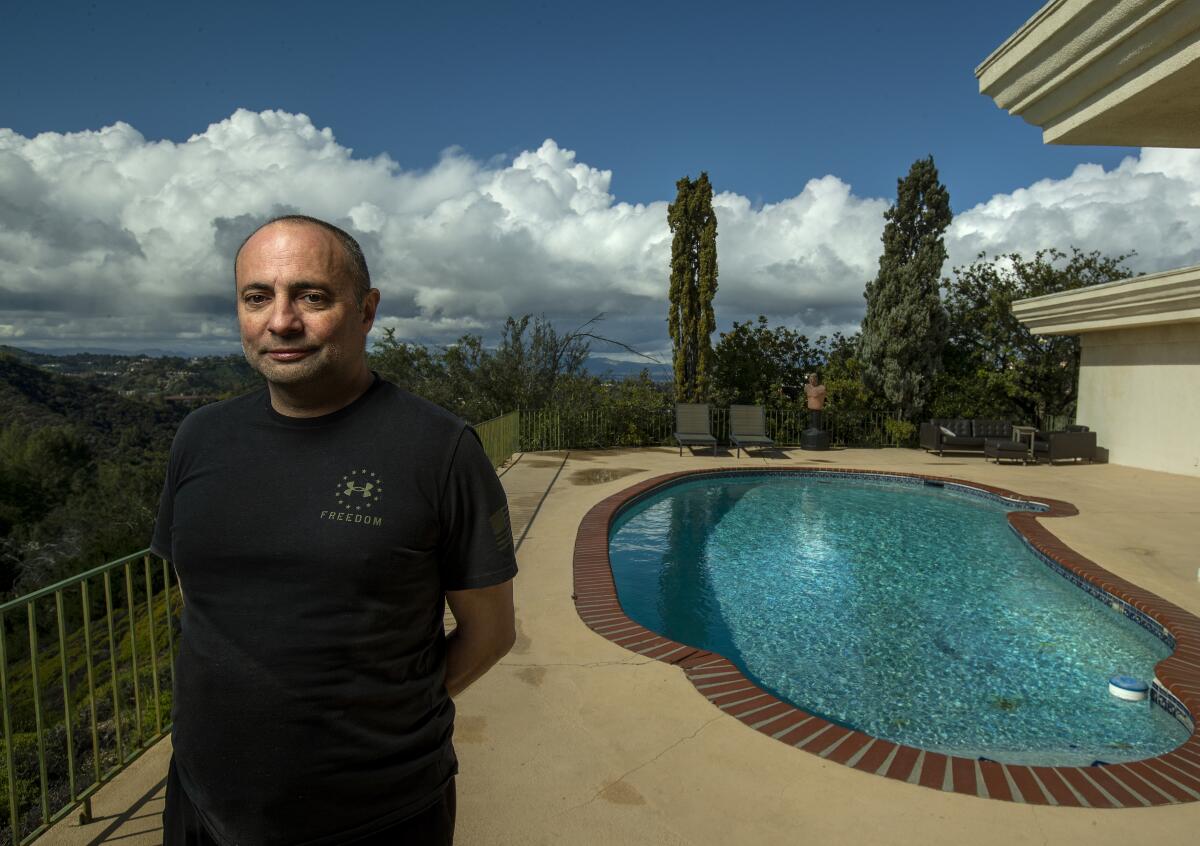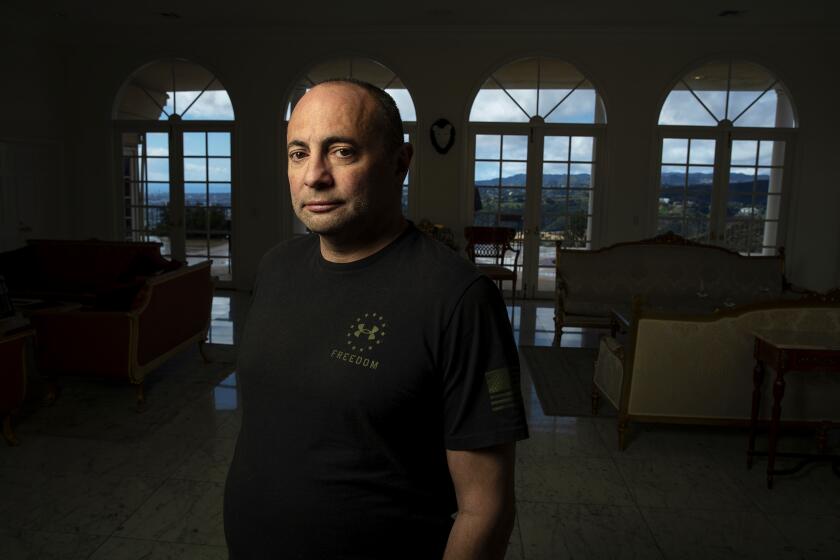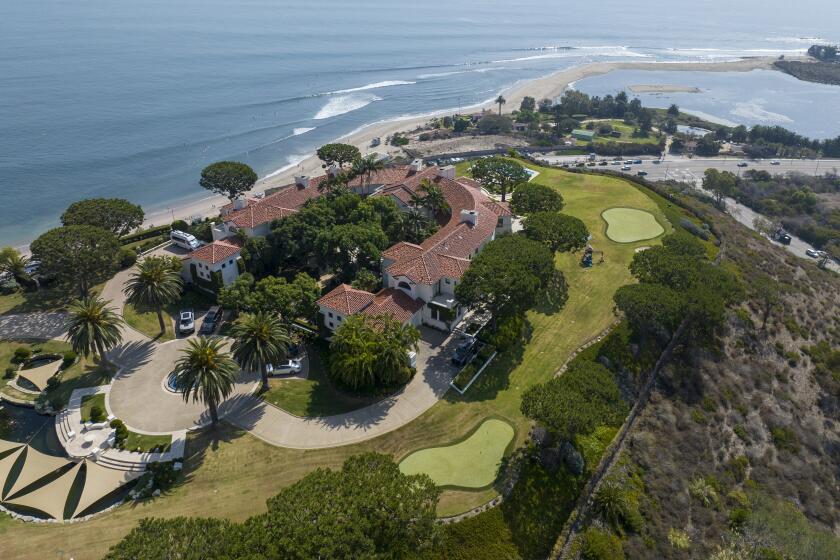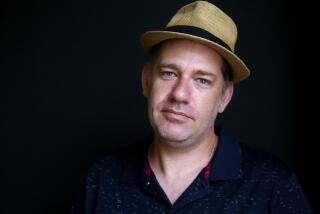Beverly Hills asylum seeker suspected of fleeing U.S. after promising to pay $150-million judgment

- Share via
Ashot Yegiazaryan, a former Moscow real estate developer and State Duma member who sought asylum in the U.S., is suspected to have fled the country after allegedly repudiating pledges he made in federal court in Los Angeles to turn over more than $150 million in a politically tinged business dispute.
The Beverly Hills resident, 58, signed documents before U.S. District Court Judge Gary Klausner on July 18 promising to take a series of legal actions in foreign courts that would allow a former partner, Vitaly Smagin, to collect on an $84-million judgment awarded him by an arbitration panel in 2014. That judgment, which stemmed from a dispute over a Moscow mall, has grown substantially with interest.
Yegiazaryan signed the document at a civil contempt hearing under the threat of incarceration after years of financial and legal maneuvers designed to keep Smagin at bay. The documents required him to stop interfering with a Liechtenstein trust that holds funds and withdraw a request in divorce proceedings in Moscow to divide the trust funds with his former wife, among other actions.
Businessman and politician Ashot Yegiazaryan fled Moscow in 2010. His long legal battle to retain a nearly $200-million settlement reached the U.S. Supreme Court.
Yegiazaryan has maintained that he is the subject of a “witch hunt” conducted by his adversaries in the Putin government, with whom Smagin has collaborated, according to a 2015 federal court filing in Los Angeles opposing a worldwide freeze of his assets.
Smagin’s lead attorney, Nicholas Kennedy, has strenuously denied that his client is associated with the Russian government. In court filings last month, Kennedy accused Yegiazaryan of not only breaking his promises to allow Smagin to be paid but of explicitly disavowing them in a notarized statement.
“The only reason I was forced into signing those documents was the fact that I was threatened by Judge Klausner that he was going to put me in jail and have me held in custody for an indefinite amount of time,” wrote Yegiazaryan, according to a copy of the statement submitted by Kennedy in the court file. He asserted that his promises made to Klausner “have absolutely no legal effect and should be disregarded and deemed null and void in their entirety.”
Yegiazaryan’s case has drawn international attention: He fled Russia in 2010, saying he feared for his life after getting into a dispute with oligarchs closely aligned with the government of Russian President Vladimir Putin. The legal battle has been cited in two think tank reports as an example of the regime’s use of foreign judiciaries to attain its ends.
Yegiazaryan signed the statement repudiating his federal court pledges immediately after the July court hearing and had it notarized by notary Daniel Lerman of Dokument USA in West Hollywood. The company specializes in rapidly obtaining travel documents for Russian nationals, according to the court filing.
Kennedy alleged the statement amounts to perjury and criminal contempt, and sought to have Klausner issue an arrest warrant for Yegiazaryan. The judge turned down the request on Friday, ruling the notarized document was not legally valid.
Kennedy thinks Yegiazaryan may no longer be in the United States, even though the Russian government has sought his arrest should he travel internationally.
“That Mr. Yegiazaryan made a beeline for West Hollywood to enlist the notarial services of Mr. Lerman only hours after his appearance before this court creates a reasonable basis to believe that he may be planning to leave — or perhaps already has left — the country, in order to escape the jurisdiction of this court and the most severe sanctions that this contemptuous conduct necessitates,” wrote Kennedy, in his motion to Klausner.
The idea was simple: Nile Niami would build and sell The One, the biggest and most extravagant new home in the country. Then things went sideways.
Yegiazaryan has used the services of the notary at least once before last year, when submitting translated Russian court documents for his Los Angeles divorce proceeding.
Yegiazaryan did not respond to requests for comment and no one answered the bell at gated homes where he has lived in Beverly Hills and Pacific Palisades. His attorney, David Golubchik, declined comment. Lerman, at his shop, also declined to comment but expressed surprise at his inclusion in the court papers.
It’s unclear how Smagin’s legal team obtained the notarized document, or how it might be used, but with multiple ongoing legal cases abroad it presumably could be referenced to disavow the pledges Yegiazaryan signed in federal court. Kennedy said he could not comment beyond the court filing.
The allegations and possible departure of Yegiazaryan from the country in which he sought political refuge mark the latest twist in a long-running dispute stemming from two linked Moscow real estate projects. Yegiazaryan has claimed the ultimate source of his legal troubles is a political break he made with Putin in the mid-2000s, when he backed a rival for the Russian presidency.
Yegiazaryan, a former banker whose father was a prominent Soviet economist, was elected to the State Duma in 1999 as an ally of Putin, but continued a second career as a real estate developer.
In the early 2000s, he was selected by Moscow officials to reconstruct the historic Hotel Moskva near the Kremlin after a deal with Donald Trump fell through. Yegiazaryan raised hundreds of millions of dollars of financing but ultimately lost control of the project to Suleyman Kerimov, a Russian billionaire seen as closely aligned with Putin who has been sanctioned by the U.S.
Mauricio Umansky, a Real Housewives of Beverly Hills regular and star of a new Netflix show, is accused of self-dealing in the $70-million sale of a spectacular Malibu estate seized from the vice president of Equatorial Guinea. He denies any wrongdoing.
Yegiazaryan said he was forced to flee Russia after masked police armed with automatic weapons raided his offices and he received threats that his children would be beheaded. After settling in Beverly Hills, Yegiazaryan won a $250-million arbitration award against Kerimov in the London Court of International Arbitration that was settled for nearly $200 million. It is those funds that Smagin is now seeking to access.
Kerimov’s attorney declined comment this year on Yegiazaryan’s allegations made in at least two federal court filings that his client was among those behind the terror campaign, but when they were first made last decade another of the billionaire’s attorneys called them “total fabrications.”
Smagin won his own $84-million arbitration award against Yegiazaryan in a dispute over a Moscow shopping mall they had developed together. The mall, called Europark, was used as collateral for a Hotel Moskva construction loan that later was sold by the issuing bank, causing Smagin to lose his interest in the mall. Smagin alleged he had been defrauded.
But Yegiazaryan claims the award obtained by Smagin, also in the London arbitration court, was tainted by the interference of Kerimov and Russian authorities. Kennedy says such claims have been rejected by judiciaries around the world.
Yegiazaryan was convicted of criminal fraud in absentia in Moscow in 2018 in the mall dispute and sentenced to seven years in a penal colony — a proceeding he characterizes as a kangaroo court. He also has fought paying Smagin through legal actions in courts in the U.S., Europe, Russia and elsewhere — but in recent years has found himself running out of moves after repeated losses in U.S. and Liechtenstein courts.
In June, the U.S. Supreme Court, in a little-noticed ruling, voted 6 to 3 to allow Smagin to pursue a racketeering case against him, expanding the application of the Racketeer Influenced and Corrupt Organizations Act originally written to target mobsters. The RICO statute allows for treble damages that could amount to more than $300 million in Yegiazaryan’s case.
Yegiazaryan has said he does not have either a U.S. or Russian passport, so it is unclear if he fled the U.S. how he could travel internationally. The family has a villa in Nice, France, that has been the subject of divorce proceedings in the U.S. and Russia, where his former wife now lives. The divorced couple are now battling over the distribution of assets, including the villa and the funds in the Liechtenstein trust.
More to Read
Inside the business of entertainment
The Wide Shot brings you news, analysis and insights on everything from streaming wars to production — and what it all means for the future.
You may occasionally receive promotional content from the Los Angeles Times.














